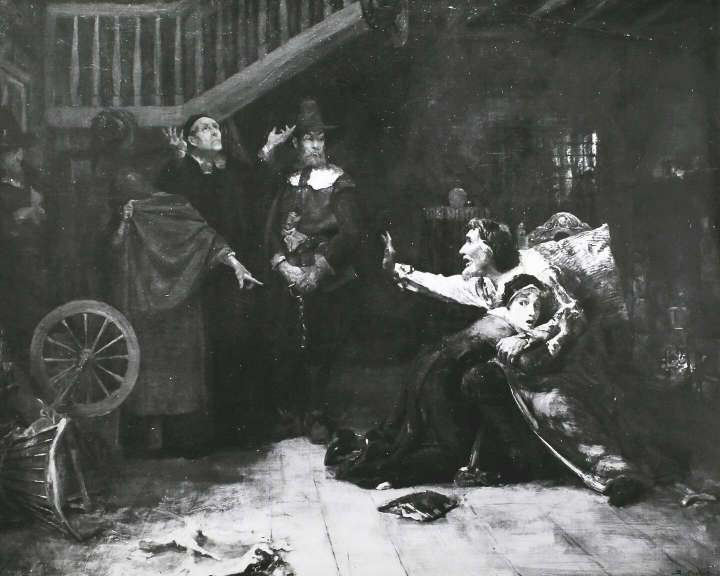Sarina E. Miller is a student in North Andover, Mass.
Thanks to middle-schoolers like me, there are at last no more Salem ‘witches’

I was a 13-year-old student at North Andover Middle School in 2021 when my mission to clear Johnson’s name started. When my fellow students and I discovered this horrible injustice against Johnson (or E.J.J., as we came to know her), we knew we had to do whatever we could to correct the record. Along the way, we learned about legal processes and our rights as citizens, about why history matters, and, most importantly, about how to give a voice to someone without one — whether in the past, present or future.
Most women who were convicted of witchcraft in the Massachusetts Bay Colony were exonerated a long time ago. Johnson’s first chance came when the initial verdict against her was thrown out after the colony’s governor ruled “spectral evidence” of witchcraft inadmissible, which included the poppet E.J.J. had brought to her trial to ensure a potentially lifesaving conviction. But a second jury found her guilty again — yet sentenced her to death nonetheless, perhaps because of the extreme measures she had taken to make herself seem like a witch.
Other women successfully petitioned for exoneration once the hysteria died down and the governor halted all executions. But even though Johnson was spared and released from prison, her conviction remained with her through her life. Her petitions failed, or they were too late. She died powerless and voiceless. And while many more women had descendants to petition on their behalf after they were gone, Johnson had none.
Finally, in 2001, the Massachusetts legislature passed a bill exonerating all other witches who had been put to death in the trials. Still, since she was never executed, Elizabeth Johnson Jr., remained, technically, the last witch.
Twenty years after that bill, the eighth-grade civics class ahead of mine, under the direction of Ms. Carrie LaPierre, took up Johnson’s case and started advocating for her absolution. Ms. LaPierre had learned of the E.J.J. oversight from the author of a book on the witch hunts, and she thought it was a “no-brainer” to take up the case as a civic action project for the class.
These students worked with state Sen. Diana DiZoglio (D) to send a bill to the Massachusetts legislature, and then to its Judiciary Committee. My class continued the effort once the year above graduated to high school. We started by writing letters to the committee, but our bill was “sent to study,” which stalled it from moving forward. Despite the setback, we kept fighting for E.J.J.: We were determined to either get a pardon from Gov. Charlie Baker (R), or to get an exonerating amendment passed through the state budget bill. So we wrote more letters and made more phone calls to bring awareness to Johnson’s story. Eventually, with the help of DiZoglio and a handful of other senators, our amendment made it into the budget bill. It was passed and then signed by Baker last month.
Finally, E.J.J. had found justice.
Some might wonder how exonerating a woman who lived three centuries ago has anything to do with today. But I was taught that we study history to understand our past mistakes. Like many of the other people accused of witchcraft, Johnson was vulnerable because she was a woman, single and an outcast in her community. Sound familiar? We find ourselves again living in a time when women’s rights are challenged and when people who are seen as different face persecution.
What inspired me most about this project, though, is that we did more than just study history: We corrected a past wrong by advocating for E.J.J.’s exoneration when she could not do it herself. We gave power to a person who never had a voice of her own. As someone who cares about equal rights for everyone, I hope that absolving Johnson will be a reminder that it is unjust to use a person’s social class, marriage standing, gender or any other identity or trait to deny them their rights. And lifting up E.J.J.’s example will be just the start of me and my peers’ work toward a society where all voices can be heard.
Thanks to a couple of eighth-grade classes, there are, at last, no more Salem “witches.” People say those who don’t learn history are doomed to repeat it. Why can’t some middle-schoolers who changed history change the future, too?






